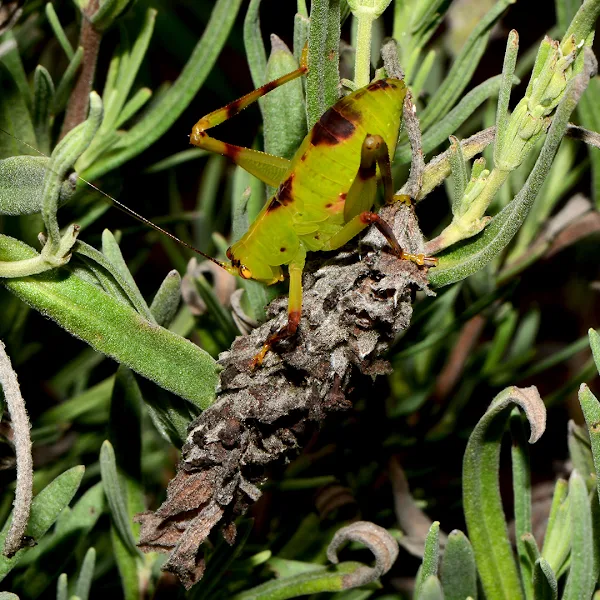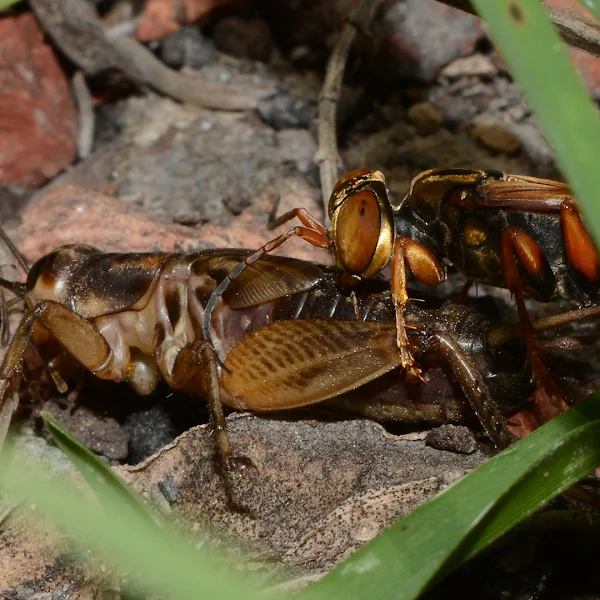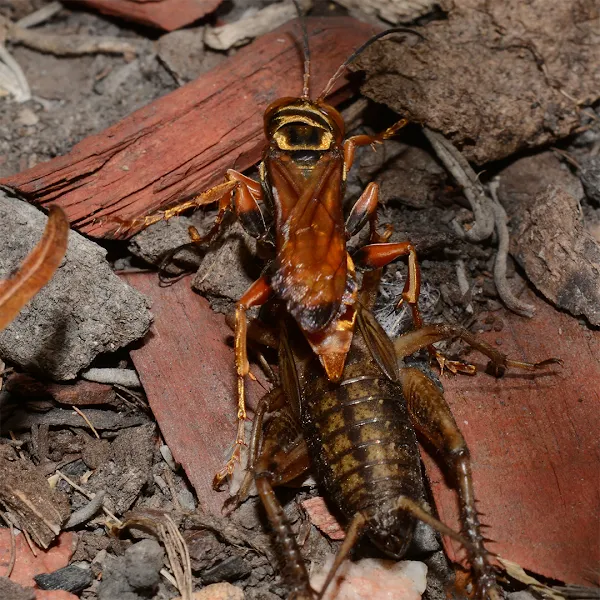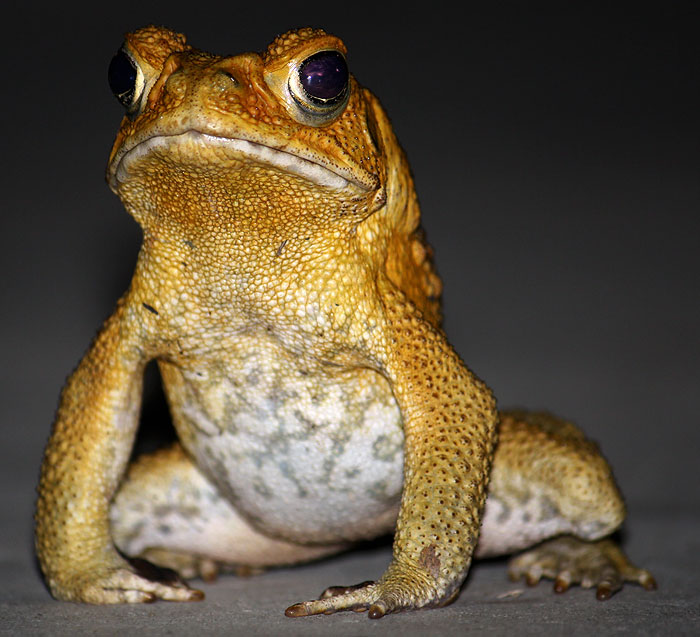Digger Wasps
In the garden - not doing anything remotely productive, (I leave such things up to Jo). I was simply poking my nose in where it doesn't belong.
When I noticed a young Katydid, I've a soft spot for them, and their summer sounds. So I hunkered down to take a pic.
When all hell broke loose!.
Oh - okay, I'm overstating - a little.
There was an audible scuffle - that, to anyone interested in the little critters of this world, means high drama.
I switched my focus - and there, at my feet. A brutal and bloody murder was taking place.
Her poor prey was a mole cricket, which gave me pause.
I tend to think of mole crickets as nocturnal - even during their breeding season.
For this one - breaking the rules, spelt its end.
The wasp heft the cricket into the air. There were some minor scrapes with the ground - as the wasp had obviously nearly bitten off and stabbed, more than her young could chew.
Eventually, she was gone - prize in mandibles. Her brood no doubt grateful for such a feast.
It didn't seem to matter to the wasp how close I got to her. She never once showed any sign of aggression. And that's the thing about such wasps. Their hive-minded cousins are very much "sting first - ask questions later".
But not solitary wasps - at least in my experience.
They can and will sting. In some cases, their venom is debilitating to humans. I wonder though, is it like many species of snake?. Their venom is so precious - and 'expensive' to produce that they try to reserve it for prey only?.
Something to think about eh?.
When I noticed a young Katydid, I've a soft spot for them, and their summer sounds. So I hunkered down to take a pic.
 |
| Tettigoniidae |
When all hell broke loose!.
Oh - okay, I'm overstating - a little.
There was an audible scuffle - that, to anyone interested in the little critters of this world, means high drama.
I switched my focus - and there, at my feet. A brutal and bloody murder was taking place.
 |
| A tackle, a bite and ... |
 |
| A sting of venom |
 |
| Followed by another - just to be sure |
Her poor prey was a mole cricket, which gave me pause.
I tend to think of mole crickets as nocturnal - even during their breeding season.
In Zambia, mole crickets are thought to bring good fortune, while in Latin America,
they are said to predict rain.
For this one - breaking the rules, spelt its end.
The wasp heft the cricket into the air. There were some minor scrapes with the ground - as the wasp had obviously nearly bitten off and stabbed, more than her young could chew.
Eventually, she was gone - prize in mandibles. Her brood no doubt grateful for such a feast.
It didn't seem to matter to the wasp how close I got to her. She never once showed any sign of aggression. And that's the thing about such wasps. Their hive-minded cousins are very much "sting first - ask questions later".
But not solitary wasps - at least in my experience.
They can and will sting. In some cases, their venom is debilitating to humans. I wonder though, is it like many species of snake?. Their venom is so precious - and 'expensive' to produce that they try to reserve it for prey only?.
Something to think about eh?.
Wasps of the genus Sphex (commonly known as digger wasps), are 'cosmopolitan', (meaning it gets around a bit), predators that sting and paralyse prey insects.
Sphex is one of many genera in the old digger wasp family Sphecidae (sensu lato), though most apart from the Sphecinae have now been moved to the family Crabronidae. There are over 130 known Sphex species.
Interesting eh? ... Well, horrific - but also interesting
Sphex is one of many genera in the old digger wasp family Sphecidae (sensu lato), though most apart from the Sphecinae have now been moved to the family Crabronidae. There are over 130 known Sphex species.
Interesting eh? ... Well, horrific - but also interesting






Comments
Post a Comment